Risk Management
February 9, 2024 2026-01-12 14:14Risk Management
EMIRATES INSTITUTE OF FINANCE
BECOME A RISK MANAGEMENT EXPERT
EIF INTERNATIONAL CERTIFICATIONS
GET CERTIFIED IN RISK MANAGEMENT
EMIRATES INSTITUTE OF FINANCE
BECOME A RISK MANAGEMENT EXPERT
EIF INTERNATIONAL CERTIFICATIONS
GET CERTIFIED IN RISK MANAGEMENT
RISK MANAGEMENT CERTIFICATE
Banks trade in money; they use the depositors money to provide credit facilities to other customers. This makes banks exposed to various types of Risks. International regulations set standards to be followed by banks in managing their exposure to those risks. The certificate in risk management takes candidates through the diverse areas of risk management in banks and builds the required competencies for different risk management roles.
EIF INTERNATIONAL CERTIFICATIONS
Launch Your Banking and Finance Career Up to New Heights
RISK MANAGEMENT CERTIFICATE
Banks trade in money; they use the depositors money to provide credit facilities to other customers. This makes banks exposed to various types of Risks. International regulations set standards to be followed by banks in managing their exposure to those risks. The certificate in risk management takes candidates through the diverse areas of risk management in banks and builds the required competencies for different risk management roles.
EIF INTERNATIONAL CERTIFICATIONS
Launch Your Banking and Finance Career
PROGRAM OVERVIEW
The EIF International Certificate in Risk Management is suitable for:
- Officials currently working in different areas of risk management
- Candidates who are looking to explore a career in the risk management domain
- Relationship managers
- Audit and compliance officials
Upon completion of the risk management learning pathway, the learners should be able to:
- Understand the various risks faced by the bank and the risk management process.
- Identify, quantify, manage, monitor various risks like credit, market, operational, liquidity and other risks.
- Analyze the regulatory guidelines on capital and understand risk-based pricing.
- Understand the importance of enterprise level risk management.
| Program Name | Mode | Program Name | Mode | |
|---|---|---|---|---|
| Classroom | Classroom | |||
| Classroom | Classroom | |||
| Classroom | Classroom | |||
| Classroom | Classroom | |||
| Classroom | Classroom | |||
| Classroom | Classroom | |||
| Classroom | Classroom | |||
| Classroom |
PROGRAM OVERVIEW
The EIF International Certificate in Risk Management is suitable for:
- Officials currently working in different areas of risk management
- Candidates who are looking to explore a career in the risk management domain
- Relationship managers
- Audit and compliance officials
Upon completion of the risk management learning pathway, the learners should be able to:
- Understand the various risks faced by the bank and the risk management process.
- Identify, quantify, manage, monitor various risks like credit, market, operational, liquidity and other risks.
- Analyze the regulatory guidelines on capital and understand risk-based pricing.
- Understand the importance of enterprise level risk management.
- Entry Requirement: None
- Examination: A two (2)-hour exam with 50 multiple-choice questions determines the outcome. A passing score is 60%.
- Fundamentals of Risk Management – (Classroom)
- Credit Risk Measurement and Mitigation – (Classroom)
- Market Risk Measurement and Mitigation – (Classroom)
- Liquidity risk Measurement and Mitigation – (Classroom)
- Operational Risk Measurement and Mitigation – (Classroom)
- Business Continuity Planning – (Classroom)
- Risk Adjusted Return on Capital – (Classroom)
- IFRS-9 for Credit professionals – (Classroom)
- Risk Oversight & Governance – (Classroom)
- Enterprise Risk Management (ERM) – (Classroom)
- Stress Testing in Banks – (Classroom)
REASONS TO GET CERTIFIED IN RISK MANAGEMENT
ENHANCE YOUR CAREER: MASTER CORE RISK MANAGEMENT CONCEPTS
REASONS TO GET CERTIFIED IN RISK MANAGEMENT
GAIN A COMPETITIVE EDGE: IDENTIFY AND ASSESS KEY RISKS EFFECTIVELY
REASONS TO GET CERTIFIED IN RISK MANAGEMENT
ENSURE COMPLIANCE AND PROTECT YOUR ORGANIZATION: ADHERE TO REGULATIONS AND BEST PRACTICES
REASONS TO GET CERTIFIED IN RISK MANAGEMENT
IMPROVE DECISION-MAKING: DEVELOP STRONG COMMUNICATION AND LEADERSHIP SKILLS
REASONS TO GET CERTIFIED IN RISK MANAGEMENT
DRIVE ORGANIZATIONAL SUCCESS: THE VALUE OF A RISK MANAGEMENT CERTIFICATION FOR CAREER ADVANCEMENT
REASONS TO GET CERTIFIED
A certification in risk management gives professionals the specific knowledge and abilities needed to recognize, evaluate, and reduce risks in the banking and financial industry. Individuals may effectively manage risks and safeguard their organizations from possible losses by gaining a thorough understanding of risk management principles, methodologies, and best practices through comprehensive training.
In order to analyze and evaluate several kinds of risks, such as credit risk, market risk, operational risk, and liquidity risk, certified risk management professionals are essential. They are proficient in stress testing, risk modeling, and risk assessment methodologies. They also know how to create risk management frameworks and strategies that are specific to the risk profile of their company.
Additionally, risk governance and regulatory compliance are emphasized in Risk Management certification programs. In addition to establishing strong risk management policies and procedures to protect against legal infractions and reputational harm, certified experts are educated to make sure that their companies adhere to all applicable laws, regulations, and industry standards.
The Risk Management certification places a strong emphasis on communication and decision-making abilities in addition to technical knowledge. Professionals with certifications have the ability to make well-informed decisions that strike a balance between risk and reward as well as effectively convey risk-related information to stakeholders, such as top management, board members, and regulators.
All things considered, earning a certification in risk management equips professionals to recognize and manage risks early on, strengthen organizational resilience, and promote long-term growth and value generation. A key factor in the long-term prosperity and stability of the banking and financial industry is the incorporation of risk management principles into the strategic planning and decision-making processes of qualified professionals’ firms.
FREQUENTLY ASKED QUESTIONS
Risk management certification is a professional credential that demonstrates your knowledge and expertise in identifying, assessing, and mitigating risks within an organization. These certifications are typically earned by passing an exam after completing a course of study or meeting specific work experience requirements.
- Enhanced career prospects: Certifications can increase your earning potential and open doors to new job opportunities.
- Increased credibility: Demonstrates your commitment to professional development and expertise in risk management.
- Improved job performance: Provides you with the knowledge and tools to effectively manage risks within your organization.
- Greater job security: In today’s complex business environment, risk management skills are highly valued.
- Higher salary: Certified risk managers often earn more than their non-certified counterparts.
- Career advancement: Certifications can help you advance to higher-level positions within your organization.
- Increased job satisfaction: The ability to effectively manage risks can lead to a more fulfilling and rewarding career.
- Professional recognition: Certifications are a mark of distinction that can be recognized by employers and peers.
Most risk management certifications require you to renew them periodically to maintain your credentials. Renewal requirements vary depending on the specific certification, but they may include continuing education requirements, work experience requirements, or re-examination.
The best risk management certification for you will depend on your specific career goals and experience level. Consider the following factors:
- Your career goals: What type of risk management role do you want to pursue?
- Your experience level: Are you a beginner or an experienced risk management professional?
- Your budget: Some certifications are more expensive than others.
- Your learning style: Some certifications are offered in a variety of formats, such as online courses, in-person classes, and self-study.
Discover how EIF can empower your professional development journey, just as it has empowered others.

Providing Quality and Excellence in banking and finance training since 1983.
CERTIFICATION ASSISTANCE
For more information on the certification programs offered by EIF, send an email to: certificates@eif.gov.ae
STAY CONNECTED
CONTACT US

